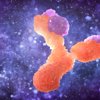-

Gene therapy restored hearing in children with congenital deafness
Eleven out of twelve children with congenital deafness showed improvements in a study testing Regeneron’s gene therapy for hereditary hearing loss. The U.S. company now plans to apply for approval of the gene therapy.
-

Many discontinue obesity medication – new study highlights the reasons
A new study maps out the most common reasons why patients choose to stop taking obesity medication prematurely. “Obesity medication discontinuation reverses health benefits and prompts weight regain in most individuals,” says Hamlet Gasoyan, one of the researchers behind the new study, in an interview with Life Science Sweden.
-

Sarah Lidé: ”Artificial intelligence must not replace authentic interactions”
Artificial intelligence must never become a replacement for authentic, even if messy, interactions with our fellow humankind, Sarah Lifé, Deputy CEO at Medicon Village Innovation, writes in a column.
-

Phase III win for Hansa Biopharma: “We Are Thrilled”
Swedish biotech Hansa Biopharma’s transplant drug imlifidase has met the primary efficacy endpoint in a registration-enabling Phase III study in the United States.
-

Allogene discontinues investigational antibody following patient death
U.S. biotechnology company Allogene Therapeutics is fully discontinuing the use of its experimental antibody ALLO-647 following the death of a patient in its pivotal CAR-T trial.
-

Novo Nordisk cuts ties with Hims & Hers after Wegovy dispute
Novo Nordisk is ending its collaboration with Hims & Hers Health due to concerns about the company’s sales and marketing practices related to the weight-loss drug Wegovy.
-

New moves around Nykode's management – withdrawal of resignations
Norwegian Nykode Therapeutics is reinstating members of the management team who previously announced their resignations.
-

Pulsen på patientförbunden del 2: Postcovid
Trots att forskningen kring postcovid gjort stora framsteg på senare år är kunskapsluckorna många. Svenska Covidföreningen ser ett akut behov av fler läkemedelsstudier och menar att precisionsmedicin är nyckeln.
-

New drug to simplify treatment of hemophilia
A new type of treatment for hemophilia, which only needs to be administered every two months, has been approved by the U.S. Food and Drug Administration (FDA).
-

FDA’s Top Vaccine Official resigns – Issues sharp criticism of Kennedy
FDA’s Top Vaccine Official is leaving his post while simultaneously criticizing the country’s health secretary for allowing “misinformation and lies” to influence his views on vaccine safety.
-

Success for Genmab's antibody-drug conjugate
The Danish company Genmab has received Japanese approval for its treatment for advanced or recurrent cervical cancer.
-

Aqilion's licensing journey: From Merck partnership to new opportunities
Be extremely meticulous with your scientific data, but spend just as much time and effort on business development. That piece of advice comes from Aqilion's CEO Sarah Fredriksson and is directed at biotech companies aiming to find a good licensing partner.
-

Investment CEO: “The Nordics are outstanding in creating successful medtech companies”
Since the beginning of last month, Susanna Francke Rodau has been a partner and the new CEO of Segulah Medical Acceleration, which invests in medical technology. In an interview she tells about which companies the investment company prefers to invest
-

Norway rejects national life science strategy – sees no need
The Norwegian Arbeiderpartiet rejects a proposal that Norway should develop its own life science strategy.
-

We desire talent to come here, but are we genuinely welcoming them?
Sweden faces significant challenges in creating a truly inclusive environment that makes international professionals feel welcome, valued, and able to build meaningful careers, writes Sarah Lidé in a column.
-

New cell therapy raises hope for curing type 1 diabetes – "Never succeeded before"
For the first time, a patient with type 1 diabetes has undergone an islet transplantation using genetically modified insulin-producing cells that do not require immunosuppressive drugs. "A major immunological breakthrough," says Professor Per-Ola Carlsson, who leads the clinical study, to Life Science Sweden.
Få tillgång till allt innehåll på Life Science Sweden
Ingen bindningstid eller kortinformation krävs
Redan prenumerant? Logga in
Gäller endast personlig prenumeration.
Kontakta oss för en företagslösning.